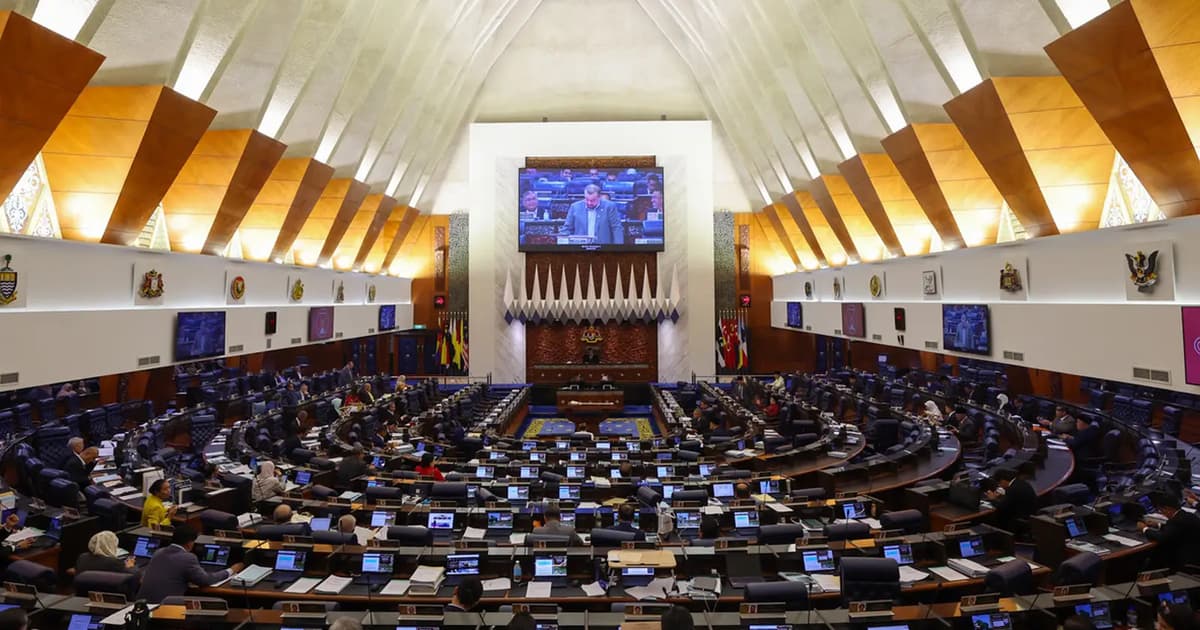
The Center to Combat Corruption and Cronyism (C4) has called for the postponement of the Government Procurement Bill’s second reading, describing its current form as “institutionally dangerous”.
C4 said the bill, which was tabled for its first reading in the Dewan Rakyat yesterday, provides ministers with “excessive discretion” and “embeds conflicts of interest”.
It also creates a registry that is open to abuse and grants Treasury officials investigative powers which even police officers exercise under stricter safeguards, the anti-corruption watchdog said.
“These weaknesses cut directly against the bill’s stated objective of advancing transparency and accountability,” C4 said in a statement.
C4 said that with the current Dewan Rakyat session concluding this Thursday, there was real concern that the bill might be bulldozed through and legislated without sufficient debate and feedback.
It said the bill grants extensive decision-making powers to the finance minister with similar authority extended to chief ministers at the state level.
“Clause 10(1)(a), read together with Schedule 1 of the bill, grants ministers and chief ministers power to approve procurement contracts valued at above RM50 million for goods and services, and RM100 million for works, with no upper limit,” C4 added.
Currently, government procurement limits are set through Treasury circulars, with thresholds based on the type of tender process and nature of procurement.
Normally, these go through tender evaluation boards as a matter of standard protocol. However, the proposed bill explicitly shifts decision-making power directly into the hands of ministers.
C4 also noted that ministers are not bound by the recommendations of the Procurement Board under the bill, and that the minister’s decision is final and binding.
The board is permitted to approve contracts between RM500,000 and RM50 million for goods and services, and between RM500,000 and RM100 million for works.
While board members are subject to conflict-of-interest disclosures under the bill, the same does not apply to ministers, according to C4.
C4 added that the appeals tribunal and process set up under the bill is under the direct influence of the finance minister.
“Such a body must be independent from the executive because complaints and disputes brought forward will necessarily involve the government,” it said, adding that the finance minister also has the power to appoint members of the tribunal.
C4 said the proposed Registrar of Government Procurement, which oversees the central registry for suppliers and contractors, has broad discretionary powers to approve or reject applications for registrations and impose any conditions it deems fit.
“With no clear guidelines, no binding duty to respond to appeals, and no independent avenue of review, the registrar’s office effectively operates without accountability,” it said.
Disproportionate investigative and enforcement powers
C4 said the bill allows officers of the Treasury or state financial authority to become “quasi-police officers”, without limits such as those prescribed under the Criminal Procedure Code (CPC).
The CPC, for example, limits searches without warrants and access to computerised data to those with the rank of inspector and above only.
“Here the question of proportionality arises: are the offences under the bill so serious that authorised Treasury officers require powers greater than police officers, and with fewer limitations?”
C4 said authorised officers would also come from the Treasury or state financial authorities, the very institutions overseen by the minister or state executive to whom they are accountable.
“Without an independent investigative body, the bill effectively entrusts enforcement to those embedded within the same chain of command that procurement decisions flow from,” it said.
It also highlighted a slew of loopholes and exemptions under the bill which it said could undermine transparency and accountability.






